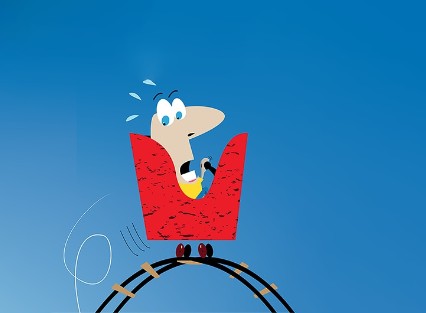Whether or not you believe that future innovation can do the past justice, innovation provides a channel for organizations to adapt and respond to a changing environment. It can accelerate the growth of new businesses and provides corporates the coveted opportunity to create a sustainable competitive advantage. Disruptive innovations are the game changers and the ultimate Holy Grail as they meaningfully change the way customers live their lives and interact with the world.
For an organization to move from “hits and misses” to highly predictable innovation outcomes and disruptive market offerings, a disciplined approach with a standardized process needs to be implemented as the best innovators combine rigorous process discipline with creativity and inspiration. It is a mission critical process but few companies get it right from start to finish.
In the pages that follow, we give thought to the process of innovation for an organization by identifying the elements of success, the stages of innovation and the benefits of implementing an Innovation Lab strategy. The end-game for an organization is to execute quickly and effectively and increase their flexibility and ability to adapt to both a changing industry and client landscape.
We then attempt to identify 10 ‘disruptive innovations’, new technologies or ideas which we believe will help create a new market and potentially disrupt an existing market or displace an earlier technology in an investable timeframe. Although the technology sector historically dominates the group — we note the advancement of 3D printing, software as a service (SaaS) and software defined networking (SDN) — technology advancements are driving innovation in a wide-range of industries.
The advent of e-cigarettes has given the tobacco industry its first innovation in decades while advances in sequencing instruments has reduced the cost of whole genome sequencing to levels where personalized medicine is no longer science fiction. In energy, new technologies in subsea processing and fracking have made previously unrecoverable resources accessible and are driving the future of transportation, while technology advancement in solar change will change how power is generated. Finally, everyday activities going foward — like how we bank and watch TV — will be significantly different from even the last decade due to innovation.
In the end the attribution of the invention quote to Mr. Duell was debunked. Instead, we find he was a visionary:
Article30 Apr 2013
Disruptive Innovation
Ten Things to Stop and Think About
Charles Holland Duell, Commissioner of the U.S. Patent and Trademark Office from 1898 to 1901, purportedly said “Everything that can be invented has been invented.” With the benefit of hindsight, it’s easy to find amusement in his words as the world that closed the 20th century was a much different place from the one that began the century, primarily due to innovation. Fast forward to 2013 and scholars are arguing that the golden days of innovation are behind us and although there will still be inventions and discoveries, they will pale in comparison with the great innovations of the past.
Click here to view the report in full.
Subscribe to Citi GPS
Keep up to date with our latest insights.


